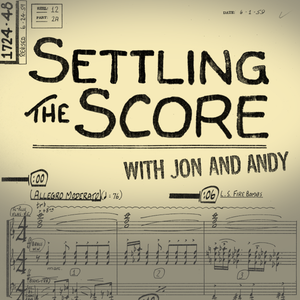
Settling the Score
Settling the Score
A film score podcast
- 2 hours 26 minutes#66 – The Empire Strikes Back
“I love this score.” “I know.” Jon and Andy search their feelings about John Williams’ score for the 1980 hit sci-fi fantasy sequel The Empire Strikes Back. How important has this score been to our hosts? How does its mastery show itself on different scales? And, what are the odds of successfully navigating this show’s longest episode ever?
3 October 2024, 7:05 am - 1 hour 26 minutes#65 – Double Indemnity
Jon and Andy go straight down the line through Miklós Rózsa's score for the 1944 film noir classic Double Indemnity. Which elements of this music sound like noir, and which don’t? Why do we enjoy stories about bad people? And, where’s a good spot in L.A. to sneak into if you want to hear some Schubert?
11 June 2024, 7:03 am - 2 hours 51 minutes#64 – 2024 Oscars Special
It’s time again for Jon and Andy to strip away the phony tinsel of Hollywood and find the real tinsel underneath, as they consider this year’s Oscar nominees for Best Original Score. Is it possible that our hosts are feeling less cranky this year? What are some different ideas these movies have for using music to fill time? And, did you notice that this episode is still shorter than two of these five nominated films?
6 March 2024, 8:19 am - 1 hour 28 minutes#63 – The Conversation
Come and eavesdrop on Jon and Andy discussing David Shire’s score for the 1974 surveillance mystery drama The Conversation. What does Shire's solo piano music express about the main character? How are the themes of the movie embodied in its world of sound? And, will Fred Flintstone be a good father?
21 February 2024, 8:03 am - 2 hours 3 minutes#62 – Name The Score! 2
Surprise! It’s time for a break from the bucket: Jon and Andy look back at all the scores they’ve talked about since the end of the AFI list, and Andy puzzles Jon with another needle-drop quiz. Can Jon remember all this music? Can you remember it better than Jon? And, like, what have our hosts even been talking about this whole time?
13 February 2024, 8:05 am - 1 hour 59 minutes#61 – How to Train Your Dragon
This time Jon and Andy train their attention on John Powell’s score for the 2010 animated fantasy adventure How to Train Your Dragon. Just how many themes does this score have? Might their meanings change with repeat viewings? And, what rhythmic pattern will Jon finally let Andy talk about?
20 December 2023, 8:05 am - 1 hour 53 minutes#60 – There Will Be Blood
In this episode Jon and Andy drink up Jonny Greenwood’s score for Paul Thomas Anderson’s 2007 period drama There Will Be Blood. How does Greenwood’s music seem to get so deeply inside your head? What lines can be drawn between it and his work for Radiohead? And, is either of us even close to getting the Daniel Plainview voice right?
12 September 2023, 7:05 am - 1 hour 34 minutes#59 – The Day the Earth Stood Still
This time Jon and Andy land their spaceship in the middle of Bernard Herrmann’s score for the 1951 sci-fi classic The Day the Earth Stood Still! How strongly was Herrmann committed to musical otherness? What peculiar instrumentation did he use to achieve unearthly sounds? And, have we finally cracked Gort's secret alien robot code?
23 May 2023, 7:03 am - 2 hours 40 minutes#58 – 2023 Oscars Special
Join Jon and Andy as they sneak back into the Dolby Theater to discuss this year's nominees for Best Original Score! Could this be our least impressive slate of contenders yet? What does it mean for music to really speak to the human heart? And, will we succeed in our attempt to keep the episode short? (No.)
9 March 2023, 8:03 am - 1 hour 18 minutes#57 – In the Heat of the Night
They call this an episode about Quincy Jones’ score for the 1967 social drama mystery In the Heat of the Night! How amazingly broad is the scope of Jones’ expertise? What effect does it have on the movie that his music feels so good? And, what would YOU say to Rod Steiger?
18 January 2023, 8:39 am - 1 hour 41 minutes#56 – Scott of the Antarctic
Get ready for a long haul, as Jon and Andy set out across Ralph Vaughan Williams' score for the 1948 historical adventure film Scott of the Antarctic. What was unusual about the relationship between this movie and its celebrated classical composer? What techniques did he use to depict snow, ice, and struggle? And, are criticisms not made worse / when written in a rhyming verse?
13 September 2022, 7:23 am - More Episodes? Get the App
Your feedback is valuable to us. Should you encounter any bugs, glitches, lack of functionality or other problems, please email us on [email protected] or join Moon.FM Telegram Group where you can talk directly to the dev team who are happy to answer any queries.
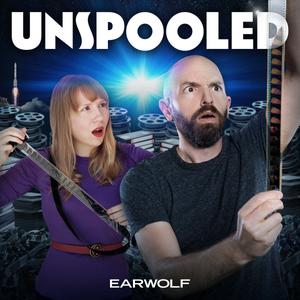 Unspooled
Unspooled
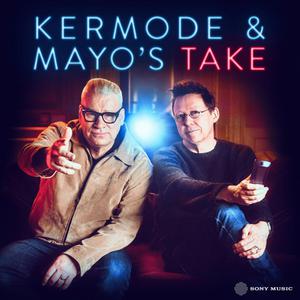 Kermode & Mayo’s Take
Kermode & Mayo’s Take
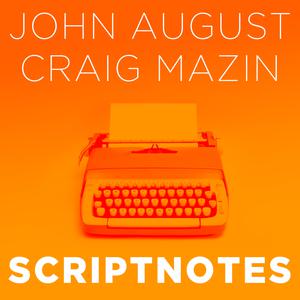 Scriptnotes Podcast
Scriptnotes Podcast
 Filmspotting
Filmspotting
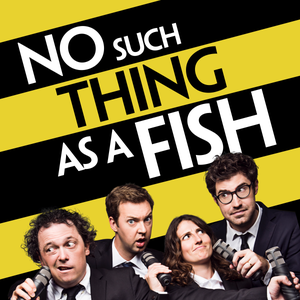 No Such Thing As A Fish
No Such Thing As A Fish
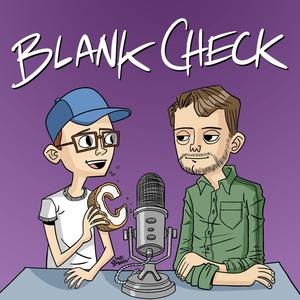 Blank Check with Griffin & David
Blank Check with Griffin & David